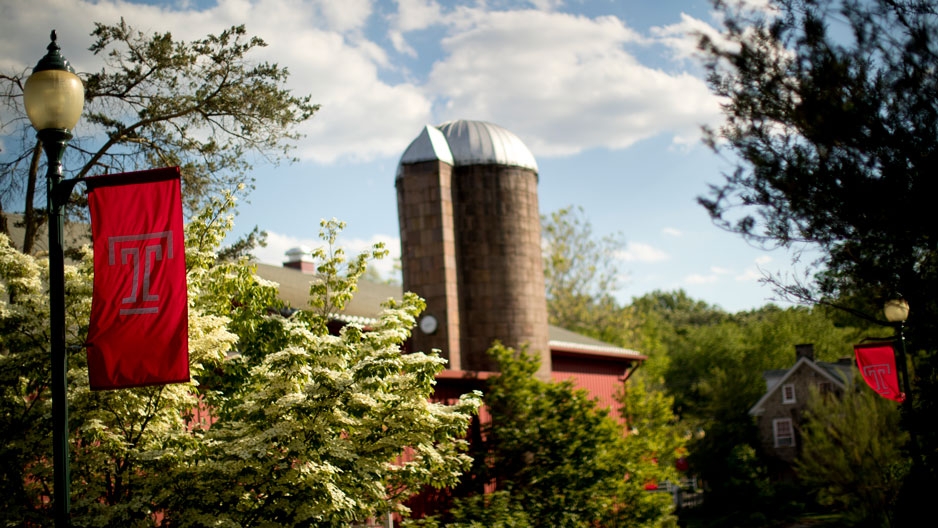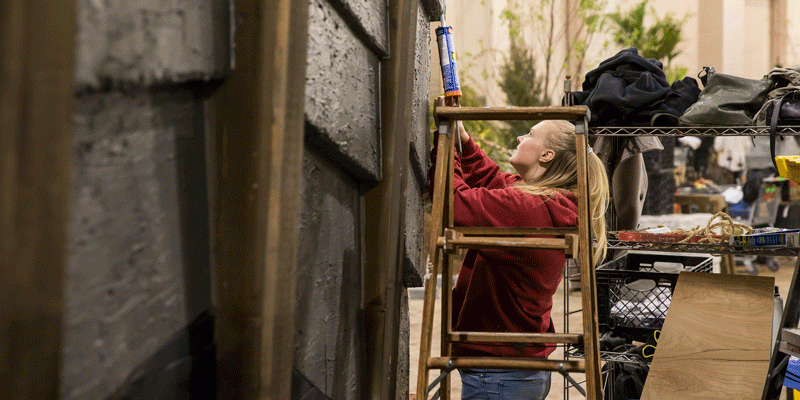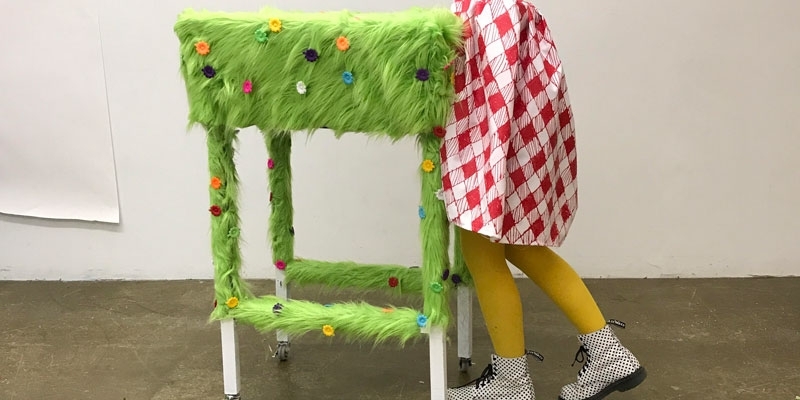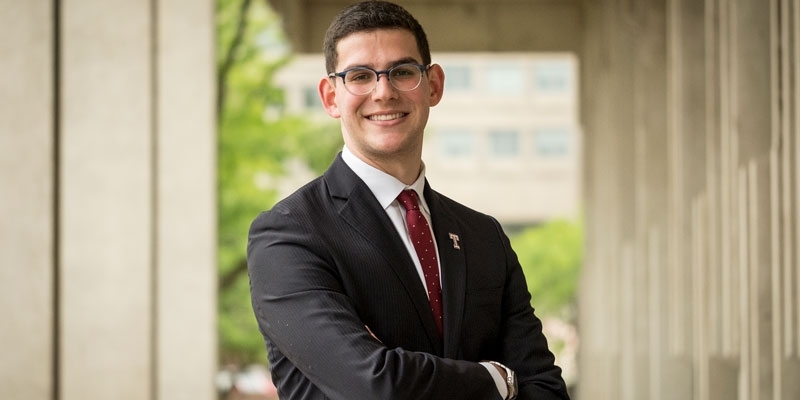University trustees explore future research partnerships at Temple Ambler
Temple’s Board of Trustees made a trip to the university’s suburban Ambler Campus to explore its offerings and imagine potential research partnerships for its unique setting.

Temple University’s rising momentum extends well beyond its Main Campus and into Montgomery County—and at the end of the spring semester, the university’s Board of Trustees and President Richard M. Englert had a chance to explore the suburban Ambler Campus and see firsthand what it currently has to offer.
The trustees and Englert completed business of the day at Ambler, holding their final meeting of the school year, before the trustees explored a bit of the history, current projects, unique research, and diverse environments and gardens that comprise the campus.
“One of the things that I love about Temple Ambler is how much the campus and the gardens influence, impact and inspire what is taking place within the classroom. In our classrooms and in our gardens today, students are learning by doing, designing and building landscape architecture projects, and learning plant science with the latest technology,” Provost JoAnne A. Epps said. “That technology and talent is leading the way toward a future where anyone can create sustainable food systems and researchers have a better understanding of how the natural and built environment can succeed and thrive.”
Epps said the trustees have directed her to examine a variety of potential research partnerships and other types of coordinated efforts with departments within the university and outside organizations that would benefit students, faculty, alumni and the community as a whole.
“At 187 acres of woodlands, meadows, formal gardens, streams and more, one of the greatest resources that Temple Ambler provides to the university is space and a rich tapestry of environments to conduct research in a broad range of disciplines,” Epps added. “There is great potential to conduct research at Temple Ambler that couldn’t take place anywhere else at the university. There is also great potential to partner with outside organizations to provide new and innovative educational and career opportunities to our students.”
At Temple Ambler, civil engineering and earth and environmental science professors are researching seismic waves and earthquakes—an impossibility at Temple’s urban locations—while College of Science and Technology researchers study hydrology, weather and more. Criminal justice experts are training the next generation of police officers and park rangers on campus, while psychology students seek to understand the cognitive development of children in the Temple Infant and Child Lab. Students, faculty and staff also continue to expand a fully accredited aquaponics garden and research lab on the campus.
During their time at Temple Ambler, the trustees observed firsthand examples of aquaponics techniques. In addition to touring the campus gardens, they learned about the nearly two dozen events, lectures, workshops and hands-on programs offered by the Ambler Arboretum and Temple Ambler EarthFest in the coming months that promote science, technology, engineering and math (STEM), environmental education and citizen science to students, researchers and community members.
In the Ambler Campus Technology Center, trustees had a chance to test drive virtual reality and augmented reality hardware, which students on campus are already putting to use envisioning the future of the campus in extraordinarily rendered 3-D visualizations.
The trustees also had a hands-on look at how 3-D printing is being used by several academic disciplines. The Ambler Campus Aquaponics Lab, for example, is working with the local chapter of the Mathematics, Engineering and Science Achievement (MESA) program to teach high school students in Philadelphia to build aquaponics systems of their own, in part using 3-D printing—knowledge the students will in turn share with other schools while working to help eliminate urban food deserts.
“As an institution of higher learning, we have the means, opportunity and obligation to teach the next generation of leaders, researchers, designers and teachers about protecting and preserving the planet that they will inherit,” said Vicki Lewis McGarvey, vice provost for University College. “We’re all very grateful that the trustees are open to and interested in seeing how the unique features and resources of Temple Ambler can be put to the best uses. We’re very excited to explore future partnerships that would mesh perfectly with the campus and work with us to support the mission of Temple Ambler and the University.”
—James Duffy


